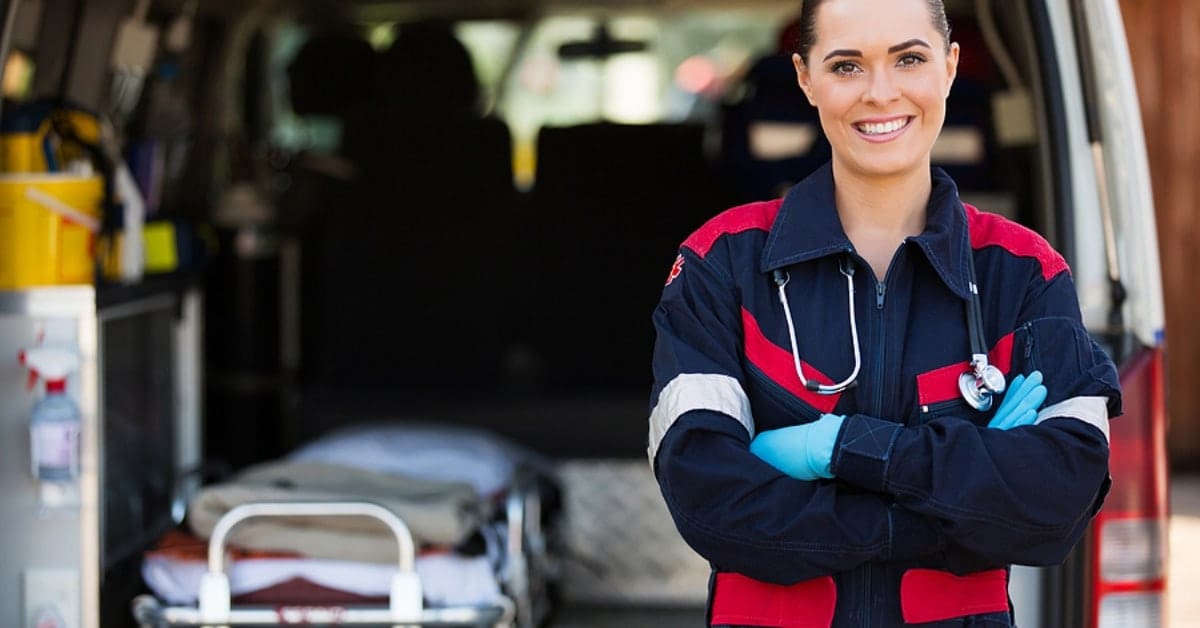
First responders — from law enforcement and firefighters to physicians, nurses, and other healthcare workers — perform vital and high-risk services for their communities. Their specialized education and training allow them to save lives, but it also comes at a significant cost to them and their families.
Fortunately, there are first-responder loan forgiveness programs that can help ease the financial burden. Some loan forgiveness programs depend on your profession or state. But there are federal programs that are universal for first responders and other public servants.
Read on for a detailed breakdown of first responder loan forgiveness programs for police officers, firefighters and healthcare workers.
Student loan forgiveness for police officers
Currently, there are very limited loan forgiveness programs specifically geared toward law enforcement and other first responder professions — outside of broad forgiveness programs for federal student loans.
However, a program was recently created to encourage law enforcement recruitment and retention across the state of Texas.
The Peace Officer Loan Repayment Assistance Program is managed by the Texas Higher Education Coordinating Board (THECB). It has narrow eligibility requirements, that unfortunately, exclude police officers who served prior to September 2019.
But if you qualify, you could receive up to $20,000 in loan forgiveness over a five-year period.
Primary eligibility requirements include:
- Must’ve been initially appointed as a full-time police officer on or after September 1, 2019 and have completed at least one year of employment.
- Must’ve earned at least 60 credits at an eligible Texas institution.
- Must’ve used the eligible loan for the cost of attendance for a semester that ended in the five years immediately preceding your initial appointment as a police officer.
Recipients are required to submit a renewal application upon completion of each year of service. And funding is on a first-come, first-served basis until funds run out.
Although the program has its limitations, it serves as a stepping-stone model for other states to expand student loan forgiveness for law enforcement.
Student loan forgiveness for firefighters
Firefighters are also limited in their loan forgiveness options. But some states are working to pass legislation that benefits firefighters and other first-responder professions.
For example, Pennsylvania representatives passed House Bill 1786 in 2019 to provide first-responder loan forgiveness to volunteer firefighters. As of December 2020, the bill currently sits in the state’s Senate, so it’s not official yet.
But if passed, it would establish the First-Responder Loan Forgiveness Program. The program would include student loan forgiveness for firefighters, along with volunteer EMT student loan forgiveness.
Firefighters and first responder families affected by 9/11
Additionally, family members of firefighters and first responders who were victims of the September 11, 2001, terrorist attacks might be eligible for loan discharge through the Department of Education.
General eligibility requirements require that applicants:
- Be a spouse or parent of an eligible public servant or victim who died or became permanently disabled due to injuries suffered in the 9/11 attacks.
- Have qualifying loans (e.g. Federal Family Education Loan Program, Federal Perkins Loan Program or William D. Ford Federal Direct Loan Program).
There isn’t a current federal application to request this discharge, so you’ll need to contact your loan servicer directly to discuss your situation.
Get Started With Our New IDR Calculator

Loan forgiveness for paramedics and other first responders
First responders of all professions might be eligible for various state or federal forgiveness programs.
These programs can potentially benefit paramedics, emergency medical technicians (EMT), firefighters, law enforcement and other personnel who respond to emergencies. But eligibility may depend on where you’re employed and for how long.
Consider exploring forgiveness programs like:
- State-sponsored loan repayment programs. Depending on your profession, your state may offer additional loan repayment programs. Visit your state’s website, and its health department site for detailed information. We’ve compiled some state-based loan repayment programs to help you get started.
- Public Service Loan Forgiveness Program (PSLF). If you work for a federal, state, local or tribal organization, PSLF is worth exploring. First responders can have their remaining federal loan balance forgiven tax-free after 120 qualifying payments under an income-driven repayment plan (IDR). As an added benefit, you might qualify for a monthly payment as low as $0 depending on your financial situation and family size.
- Perkins Loan cancellation. The Perkins Loan Cancellation program provides first responder loan discharge, including correctional officer student loan forgiveness. You might be eligible to have 100% of your Perkins Loan canceled over a five-year service period. Loans are discharged in annual increments of 15% for your first two years, 20% for your third and fourth year and 30% for your final fifth year of service.
There’s potential for more student loan legislation that’ll benefit first responder student loan borrowers and provide further relief during the COVID-19 pandemic. In the meantime, if you don’t qualify for the specific first responder loan forgiveness programs above, consider your federal forgiveness options.
If you need assistance navigating any of these forgiveness programs, please reach out to our team. We can’t thank you enough for your service and sacrifice, but we can hopefully save you some money! Book a consult today.
Not sure what to do with your student loans?
Take our 11 question quiz to get a personalized recommendation for 2024 on whether you should pursue PSLF, Biden’s New IDR plan, or refinancing (including the one lender we think could give you the best rate).
